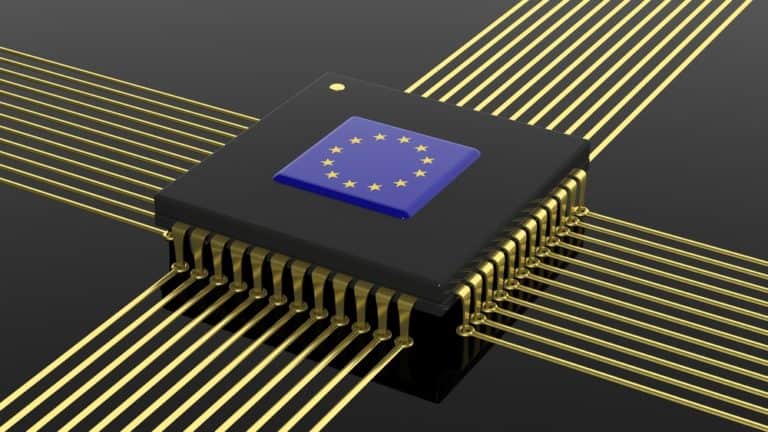The European Union is examining the idea of setting up its own chip manufacturer with an alliance of European companies. This would make the region less dependent on chip manufacturers in Asia and the US.
The alliance would consist of several companies already active in chip manufacturing, such as STMicroelectronics, NXP, Infineon and ASML. The shared cooperation would reduce the dependence on foreign chip manufacturers in the light of current chip shortages.
Important Project of Common European Interest
The plan is still at an early stage, Reuters’ sources said. It would possibly be set up as an Important Project of Common European Interest (IPCEI), making sponsorship of the project easier for member states and encouraging companies to work together. A similar initiative is already underway for making hydrogen widely available on the continent.
With a European semiconductor coalition, the EU could give more substance to the plan to double the European share of the semiconductor market to 20 percent by 2030. The first step to achieving this is to persuade foreign chip manufacturers to build chip factories within the EU.
Talks with Intel and TSMC
On Friday, Intel CEO Pat Gelsinger will come to Europe to discuss building more chip factories in the region. Intel is the only one of the three largest chip makers to have a handful of factories within the EU, in Ireland. TSMC and Samsung have their factories mainly in Taiwan, South Korea and China. Both companies also have a small presence in the US but no production capacity in Europe.
Attempts by Europe to change this seem to have little effect. There is talk of an investment forum later this year to persuade Taiwanese semiconductor manufacturers to expand into the EU, but it is not clear whether this will be successful. Earlier this week, a Taiwanese minister announced that the island prefers to keep chip production on its own soil.
Establishing a local chip manufacturer might be the way forward
Also, from within the EU, voices are saying that attracting foreign chip manufacturers is not the way to increase capacity on the continent. “If we step on the toes of European players, then I’m not sure our sovereignty will gain anything from it,” the source told Reuters. Some officials from within the European Commission are also not keen on the idea of remaining dependent on foreign chip manufacturers.
In the long term, a project from within the EU is probably wiser than cooperation with foreign players. There is enough knowledge to be found within the continent. STMicroelectronics, NXP and Infineon have been making microchips themselves for decades, although they are not currently keeping up with the latest developments. However, ASML, currently the only company that can make the machines for the most modern microchips, is based in the Netherlands. If these companies join forces, there is certainly potential to compete with the top in chip production.
